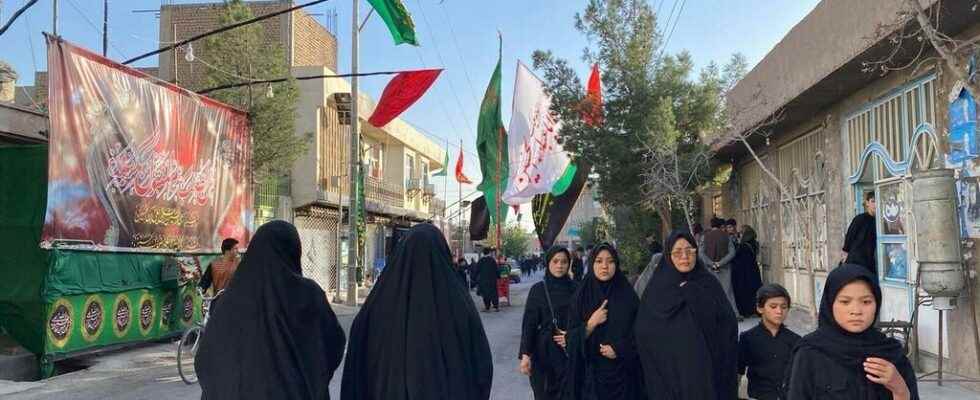In Afghanistan, the country’s Shiite community celebrated Ashura on Monday, August 8, the most important religious celebration for them. Last week, this community was particularly targeted by attacks in Kabul and its surroundings.
From our correspondent in Herat, western Afghanistan,
The atmosphere was very special given the context. Eleven people were killed, forty others injured in two explosions that occurred on Friday and Saturday. On Friday, the bomb exploded during a funeral gathering in a Shiite neighborhood of Kabul. An attack claimed by the Afghan branch of the Islamic State organization. On Saturday, the explosion was caused by an explosive device concealed in a flowerpot on a sidewalk in a nearby neighborhood.
Ashura is considered a high-risk celebration due to processions, massive gatherings in mosques to pray and commemorate the death of Imam Hossein, grandson of Prophet Muhammad and son of Ali, who was killed in 680 in Kerbala in Iraq by the troops of the Umayyad Caliph.
Anxiogenic climate and no telephone network in Kabul
The celebrations in Herat took place without incident. In Kabul, the concern was increased tenfold, because several districts of the capital, and essentially those which are in majority Hazara, were deprived of internet and mobile network. It was impossible to reach the residents of these areas and therefore to know what was happening on the spot.
A rather worrying situation in view of the attacks that occurred last week against the Shiite community. According to some media, the causes of the breakdowns were technical. Maintenance problems would have been at the origin of these cuts which started on Sunday evening in certain districts and which persist until now.
On the internet many rumors circulated, some internet users claimed that the Taliban were carrying out raids against the Hazaras. Others said that the Taliban wanted to limit the information circulating in the event of attacks. But it seems to be more for security reasons: the explosions that took place last week were caused by explosive devices detonated remotely by telephone. Without a mobile network, these bombs cannot be activated.
But the lack of official information contributed to the anxiety-provoking climate. Especially since the Shiite community feels ostracized since the seizure of power by the Taliban who are Sunnis. It has no representative in the government and Achoura has been removed from the calendar of national holidays this year. The Shiites feel discriminated against and have the feeling that nothing is being done to protect them. A feeling that already existed under the previous government.
IS continues attacks in the country
Although security seems to have improved significantly since the Taliban took power almost a year ago, attacks always take place. The Taliban were indeed at the origin of many attacks and are no longer actors in the conflict. But the armed wing of the Islamic State group, which established itself in the country in 2015, continues to strike in Afghanistan, often targeting the Shiite minority. But not only.
The IS has also claimed responsibility for numerous attacks perpetrated across the country against Shiites, Sufis and Sikhs, whom they consider to be heretics. The Taliban continue to minimize the threat posed by the terrorist group in Afghanistan, but the recurrent attacks show that the IS has a real strike force that does not diminish.
►Also read: In Afghanistan, a year after the return of the Taliban, the increasingly bleak horizon of women
